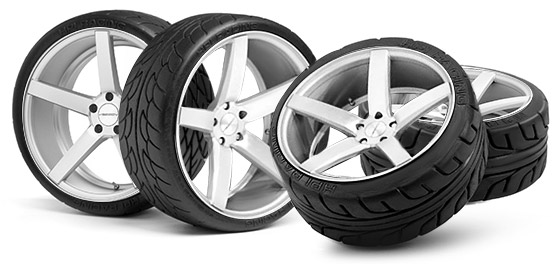What is an Alloy wheel ?
In the automotive industry, alloy wheels are wheels that are made from an alloy of aluminum or magnesium. Alloys are mixtures of a metal and other elements. They generally provide greater strength over pure metals, which are usually much softer and more ductile.
Why alloy wheels are used ?
Since alloys are able to dissipate heat better than steel wheels, they provide better braking performance and decrease the risk of brake failure.
What are the advantages of alloy wheels ?
- Better looks -
Steel wheels can never look as good as alloy wheels, and the cosmetic upgrade and improved visual impact are the major reasons why so many people opt for them.
- Better heat conduction/dissipation -
Since alloys are able to dissipate heat better than steel wheels, they provide better braking performance and decrease the risk of brake failure.
- Better performance -
Alloy wheels decrease unsprung weight and therefore transmit less inertia to the springs, thus allowing the suspension to follow the terrain more easily, thereby providing better grip. In addition, handling, steering and cornering see a marked improvement.
- Better fuel economy -
Because alloy wheels are lighter than steel wheels, fuel efficiency is increased to a certain extent.
- Better braking -
This is because there is better traction during braking since wheel hop is reduced with alloy wheels.














